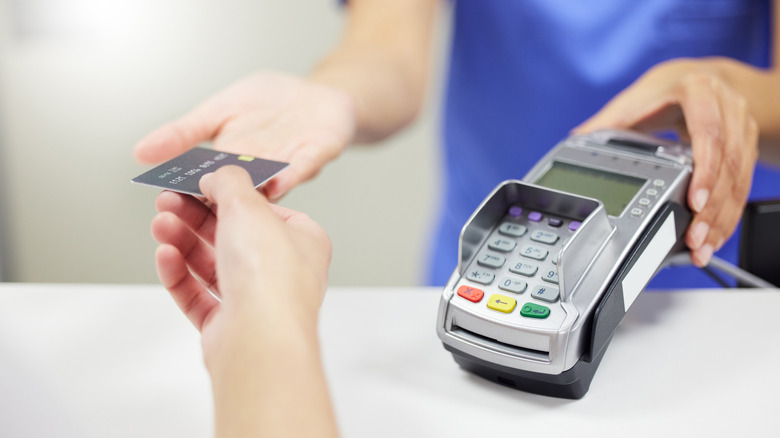This Healthcare Discount Has One Major Drawback That Could Cost You
Health care is the one item in many people's budget they can't cut no matter how hard they try. While it's one of the few items worth prioritizing, it can definitely add up with people paying for premiums, copays, medications, and other health-related expenses. In total, Americans spend an average of $10,191 on health care in a single year.
For those with high-deductible insurance plans, turning to self-pay instead of relying on insurance could be a money saver. But while taking advantage of a self-pay discount is a crafty solution, it could end up costing you in the long run because these payments generally do not contribute to your deductible.
Self-pay entails a patient paying for their medical services out of pocket instead of going through insurance. Taking this route eliminates additional administrative work medical providers would have to complete to bill patients through insurance. It also provides them with faster access to payments. According to National Plan Administrators, medical providers may be able to offer their services at discounts of 30 to 50%. As good as it may seem, this option may only be beneficial in certain scenarios, and you may end up paying even more and lose out on benefits, according to NBC News.
Here is why cash payments can cost you in the long run
Electing for self-pay can lead to some savings. In fact, hospitals are required by law to make their cash prices available online, helping individuals know exactly how much they will spend before their visit. However, where things begin to get tricky is when it comes to insurance deductibles. A deductible is the amount an individual or a family will pay for medical expenses before the insurance coverage kicks in. Using self-pay for minor, inexpensive procedures makes sense if you're relatively healthy and have enrolled in a high-deductible plan, because this way, you get a self-pay discount and save a decent chunk of money on monthly premiums. However, in the event of an accident, a major emergency, or a critical illness, you could end up paying more since those self-paid expenses don't contribute to your plan's deductible.
Additionally, by electing to pay for medical expenses in cash, you can also lose out on certain insurance benefits. Many insurance plans include free preventive care, which commonly include annual physicals, immunizations, and wellness programs. If you exclusively go for self-paying for all medical expenses without checking your plan's details, you can end up paying for treatments or procedures you would otherwise get for free. And if you do opt for cash pay, regardless of your insurance plan or the procedure, never pay your medical bills with a credit card.

